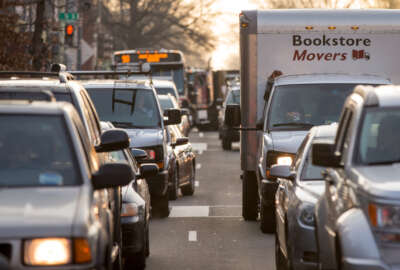Philadelphia is the City of Brotherly Love. Los Angeles is the City of Angels. Baltimore is Charm City. New Orleans is the Crescent City. Fargo is probably something. And so it goes. But here in D.C., we are often called The City of The Worried Well. A place that wimps out following a snowstorm and is out of touch with the rest of the nation the rest of the time. Worse yet, it’s been forever since we went to a World Series.
How come?
Take yesterday.
Please.
Millions of people in the Washington metro area currently hate Metro. That’s our subway system. The equivalent of BART in San Francisco. Or MARTA in Atlanta. Or the Tube in London.
Because of a series of accidents, glitches and ever-increasing delays or localized shutdowns, Metro is on lots of people’s H-I-T List. Either because it wasn’t running on time. Or running right.
Many, if not most, of Washington’s power brokers are above, or oblivious to, mundane things like rush hour and traffic jams. Many are driven to work. Many don’t even know where the nearest Metro stop is. Most of their kids go to private schools and are driven there, often by feds hired to mind them. D.C.’s public schools have buses for special-ed kids. But not for other pupils who are supposed to get to school by walking or, you guessed it, taking Metro.
On Wednesday, people were angry at Metro because its trains weren’t running. At all. The entire rail system shut down because the new general manager — who may yet turn out to be the angel needed to run the system — pulled the plug. For a safety inspection. Metro has had problems from fires to flooding. It has had crashes, some of them with fatalities. Something about 600 jumper cables (not like the ones you are supposed to carry in your car) that supply power, including braking power, for the train’s third rail. Anyhow, really important equipment. Some had already been inspected, but the new GM didn’t know if the inspections had been done properly. So rather than shut down only parts of the system, the entire system was closed. Supposedly until 5 a.m. Thursday.
While many profess to hate Metro, hundreds of thousands still use it. Many of them come from other cities — New York, Chicago, Philadelphia — and they have fond (if sometimes faulty) memories of the earlier times. And earlier commutes that were always happy and flawless. Not like here. For some of them, the only thing worse than Metro up-and-running is Metro shut down.
Washington being Washington, lots of people here are both naturally and professionally suspicious. When it’s announced that the President is canceling a meeting because of a cold or the flu, professional worriers speculate about the real reason. (Like when JFK got a “cold” and cut short a trip, to come home and deal with what ultimately became the Cuban Missile Crisis). Those folks, and there are a lot of them, wonder if there is another, deeper maybe sinister, reason Metro was shutdown.
Regardless of why Metro was shutdown, lots of folks are unhappy that it happened. And the way the government — our largest single employer — handled it.
Sam S., asked, “Why couldn’t they have treated this like a snow day? Just tell nonessential people to stay home. Get off the roads. Clear the decks for public and private workers who have to work. Instead we get a late confusing message. Grrrr!”
John Taylor said, “I’m very disappointed in OPM. Many feds like myself do not have a viable way to get into D.C. for a full workday without Metro. Any leave we must take is the equivalent of stealing from us. I’m sure this will help the government save hundreds of thousands, if not millions, of dollars. But it is not honest. It highlights yet again how disenfranchised feds are these days.”
So as always here, the good news/bad news is the same thing: Metro was shut down yesterday. It’s supposed to reopen today.
Nearly Useless Factoid
By Michael O’Connell
Thanks to its lenient divorce laws, Fargo, North Datoka, became known as the “divorce capital” of the Midwest during the 1880s.
Source: Wikipedia
Copyright
© 2024 Federal News Network. All rights reserved. This website is not intended for users located within the European Economic Area.
